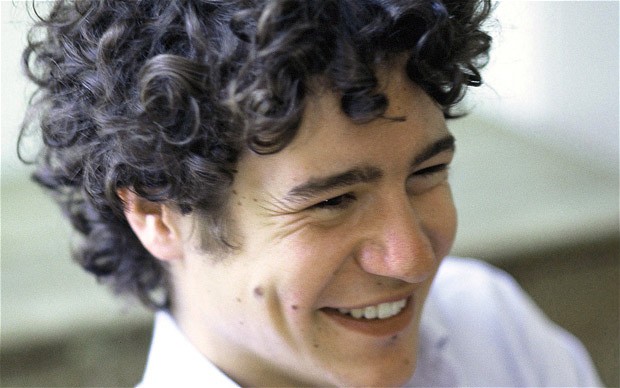Glyndebourne, the great Sussex opera house, celebrates its 80th anniversary this summer. Hurrah! There is a new music director, too, 31-year-old Robin Ticciati. Hurrah! And he opens the season next week with a new production of Der Rosenkavalier directed by Richard Jones. Hurrah! Summer has begun.
There are few finer plots of land to be on a summer evening in England than Glyndebourne, one of those rare places where the frame matches the picture. In a way Glyndebourne defines England, and summer, and the way the English take their pleasures. Certainly there is no place like it anywhere else. People at other festivals may love music just as much, and swank even more, but Glyndebourne, with or without black tie, is a world apart.
And few operas will be greeted with greater rapture than Strauss’s Viennese masquerade, which is one of the three most popular works in the repertoire alongside The Marriage of Figaro and La Bohème. Ignore the musical snobs who tell you that Rosenkavalier is second-rate Strauss. Whatever you think of Strauss the man, and he provides an inviting target, his best-loved opera is loved for one overwhelming reason: it is the work of a genius. Two men of genius, if one includes, as one must, the librettist Hugo von Hofmannsthal. If you don’t have a jolly good blub at Rosenkavalier, check your pulse.
‘A complete masterpiece,’ Ticciati calls it. ‘Music, text, singing, everything. Of course it has the great numbers, the end of the first act, the presentation of the rose in the second act, and the 11 o’clock trio at the end. I have utter love for it, and am deeply moved by it. You sense the connection with Mozart but it is seriously funny, not just a bundle of clichés about gilt and old Vienna.’
The lad’s 20 not out already, and hasn’t faced a ball! Clearly audiences are going to be in for a bracing journey with young Ticciati, who has crammed a fair bit into his first three decades, and seems destined to pull up a few more trees before his race is run. In his fifth season as music director of the Scottish Chamber Orchestra, and with a spell as principal guest conductor at the Bamberg Symphony behind him, this protégé of Sir Colin Davis has made a fizzing start to his musical career, although, as Sir Simon Rattle has said, wittily and truthfully: ‘Career is not a musical term.’
Maybe not, but the baton-wavers do seem to be starting younger. At 31, with a solid decade of work behind him, the Titch makes even Gustavo Dudamel (33) and Andris Nelsons (35) look advanced, while Vladimir Jurowski, Ticciati’s predecessor at Glyndebourne, appears a greybeard at 42. Then there are other young men in a hurry: Philippe Jordan, Yannick Nézet-Séguin, Ed Gardner, Petrenko K and Petrenko V. Wherever you look the world is suddenly full of young conductors making a splash.
When Fritz Busch and Carl Ebert began the great Glyndebourne adventure in 1933, Mozart was ordained the house composer, and that remains the case. Later in the summer Ticciati will supervise La finta giardiniera with the Orchestra of the Age of the Enlightenment in the pit. In recent years the OAE has enjoyed almost equal weighting with the London Philharmonic, and Ticciati is looking forward to working with these two ensembles as he settles down in his new post.
What can we look forward to? Other than Berlioz (woo!), he doesn’t name names but when he refers to ‘the great 19th-century German romantic tradition, where the LPO and the OAE can work side by side’, it is not difficult to think of certain operas that might fit snugly into the world of Glyndebourne. Der Freischütz, for instance. Weber’s wolf’s glen lies at the very centre of German romanticism.
‘I want to attract the right conductors and directors to work here, and to maintain that Glyndebourne tradition of combining established and new singers. In Rosenkavalier our Baron Ochs has sung the role before, our Sophie hasn’t. This is a festival where the established and the fresh exist together. You want audiences to think, “oh, that’s coming back”, but you also want to scatter some confetti, on the spur of the moment.’
Like Rattle before him, Ticciati was a percussionist in his teenage years, which is where he first worked with Davis, the youthful firebrand who, mellowing over the years, transformed himself into the grand old man of English conducting. ‘Colin used to say, “listen to the music, it will tell you what to do”. That’s true of music, and it’s also true of life. Music can teach you an honesty, because it is about a philosophy of life, and living. It should fill the soul.
‘The challenges, musical and intellectual, are there for us all, and I am so thrilled to be here. It feels the right place to be, and to represent the ideals of Glyndebourne, which came originally from Sir John Christie, and then Sir George. Ideals which are a form of magic. Music has the capacity to change you as a human being, and we all need constant development.’
Music, magic, Glyndebourne. Summer nights, enchantment, memories to last a life. So look into your mirror, Marschallin, and tell us where the days have flown. It’s time to flood the Downs with beauty.






Comments